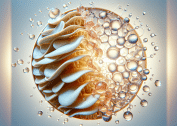Discover how natural skincare routines can transform your well-being and beauty approach. This comprehensive guide explores ingredients, routines, and what mindful choices do for your skin and confidence.
The Real Power of Natural Skincare Ingredients
Natural skincare uses ingredients sourced from plants, minerals, and botanicals. These can help keep the skin healthy without the harsh chemicals found in some commercial products. Many people find their skin feels smoother and looks brighter when they switch to naturally sourced cleansers and moisturizers. From coconut oil to green tea, each element brings unique benefits to the table. For example, aloe vera can soothe irritation while jojoba oil helps retain moisture. The move toward natural products reflects growing awareness about what people put on their skin daily. It’s not just a beauty trend—but a lifestyle choice rooted in wellness and holistic health.
People often ask what makes natural skincare different. It comes down to simplicity and fewer unnecessary additives. Ingredients like shea butter, calendula, and chamomile extract are widely used in balms and creams for their soothing and anti-inflammatory properties. Simple blends tend to suit more skin types, even sensitive ones. Consumers are also becoming more interested in ingredient transparency—knowing exactly what’s in their moisturizer or facial serum builds trust in the skincare process. Synthetic fragrances and parabens are less common in natural options, which might reduce the risk of irritation for some users.
Another benefit of clean beauty ingredients is environmental sustainability. Many natural brands focus on eco-friendly sourcing and biodegradable packaging, helping to decrease their environmental impact (Source: https://www.ncbi.nlm.nih.gov/pmc/articles/PMC8046021/). These conscious choices fit seamlessly into a modern lifestyle that values ethical practices along with personal wellness. By choosing products with plant-derived actives, people may find their beauty routine aligns with both their health goals and values about environmental care.
Building a Simple and Effective Natural Skincare Routine
Crafting a routine with natural skincare is surprisingly easy. It usually centers around cleansing, moisturizing, and sun protection. These three steps can serve as the foundation for healthy skin. Many experts suggest using a gentle botanical cleanser to remove dirt and oil without stripping away essential moisture. Micellar water with plant extracts is another popular option for those seeking a minimal approach. A consistent ritual can bring both visible results and a sense of relaxation each day.
Adding a moisturizer that uses ingredients like rosehip oil or hyaluronic acid can lock in hydration. These elements gently plump the skin, leaving it soft and supple. People often overlook that a basic routine—with ingredients easy to understand and recognize—can be just as effective as complex regimens. Overexposing skin to too many active chemicals may trigger sensitivity. A focused, natural approach is often enough to support the skin’s natural barrier and encourage healing.
Don’t forget daily sun protection. Many natural products now offer mineral-based sunscreens formulated with zinc oxide or titanium dioxide, which protect from UV rays. Consistent sun safety is essential for long-term skin health and preventing issues like premature aging (Source: https://www.cancer.org/healthy/be-safe-in-sun/sunscreen.html). A regular morning and evening routine using natural products can be quick, sustainable, and deeply rewarding.
Understanding What Skin Needs: Customizing Your Routine
Everyone’s skin is unique, and natural skincare lets you adjust products as needed. Identifying personal skin type—such as oily, dry, or combination—can guide the choice of ingredients and formulas. For dry skin, nourishing oils like avocado or argan provide deep hydration. Oily skin may benefit from lighter options like grapeseed oil or tea tree extract. Customization is easy when each ingredient has a specific benefit.
Skin can also change with the seasons. Winter dryness, for example, may call for richer creams and balms, while summer brings a preference for light, refreshing gels (Source: https://www.dermatologytimes.com/view/how-oily-and-dry-skin-differ). Paying close attention to how the skin feels after applying products is important. If irritation or breakouts develop, adjusting ingredient choices often resolves issues. There’s no one-size-fits-all with natural beauty. Building a mindful routine means listening to skin day by day.
Certain skin concerns—such as redness, uneven tone, or excessive shine—can influence which botanicals to try. Licorice root extract is known to brighten, while oatmeal calms sensitive areas. People seeking gentle alternatives to chemical peels sometimes turn to fruit enzyme exfoliators instead. With countless ingredient options in the natural beauty field, everyone can explore which elements resonate with their skin’s needs and match personal wellness goals.
The Science Behind Natural Skincare: Do These Ingredients Really Work?
The effectiveness of natural skincare ingredients continues to be studied by dermatologists. Natural oils and plant extracts often provide antioxidants, which help the skin defend itself from environmental stressors (Source: https://www.ncbi.nlm.nih.gov/pmc/articles/PMC3673383/). Vitamin C, found in citrus, is a popular example for brightening and supporting collagen. Studies suggest that vitamin E and green tea extract soothe and protect, with visible improvements for some people’s complexion and texture.
It’s important to emphasize that not every natural ingredient will suit every skin type. Some essential oils, if applied too strongly, can lead to irritation. Patch testing new products before full use is a good practice. Over time, gentle ingredients typically support the skin’s barrier, helping repair and renew. Research is ongoing, but a balanced natural routine has shown potential for people seeking less invasive skincare approaches—and often with fewer preservatives or allergens.
For those with acne-prone skin, ingredients like witch hazel and willow bark extract are often included in toners for their clarifying effects (Source: https://www.health.harvard.edu/womens-health/the-best-sensitive-skin-care-products). The science of skin health highlights that gentle, plant-based products can support healing and promote a vibrant appearance. Exploring reputable clinical and academic resources can offer further guidance when choosing new formulas or building a routine.
Myths, Misconceptions, and Smart Choices in Natural Beauty
A few myths surround natural skincare. Some believe all plant-based ingredients are automatically safe, but individuals can react uniquely to even gentle botanicals. Not every ‘organic’ or ‘natural’ label means a product is effective or appropriate. Certification bodies exist to verify claims, but reading labels and knowing ingredient sources remains wise (Source: https://www.fda.gov/cosmetics/cosmetics-labeling-claims/cosmetics-labeling-guides). General skin sensitivity differs from one person to another.
Another misconception involves natural skincare’s results. Changes in skin often take several weeks to appear, regardless of product type. Consistency in application is more impactful than seeking a quick fix. Smart choices in routine building include spot-testing and introducing only one new product at a time, making it easier to notice effects or side reactions. Research-backed sources can clarify what ingredients actually do for skin health.
Lastly, people sometimes mix homemade remedies with store-bought products. Caution is warranted, as not all do-it-yourself blends are safe or stable. Simple routines that rely on established, well-tested natural brands tend to bring better peace of mind. Staying informed and looking for clinical evidence on ingredient efficacy leads to more satisfying experiences with wellness and beauty routines.
The Wellness Connection: Natural Skincare and Emotional Health
Beauty and wellness aren’t separate—using natural skincare can nurture emotional well-being. Taking a few mindful minutes morning and night helps people unwind and refocus. Aromatherapy is sometimes added to botanical routines with calming lavender or uplifting citrus, offering more than just surface-level benefits. These little rituals turn self-care into a soothing, restorative habit.
Research shows a link between routine self-care and reduced stress. A gentle facial massage or soothing mask creates moments of calm in a busy day (Source: https://www.apa.org/monitor/2019/07-08/self-care). This mind-skin connection is increasingly valued in holistic health communities. Nurturing the skin with natural ingredients becomes a way to nurture the whole self—mind, body, and soul. These benefits reach far beyond physical appearance.
Many people report feeling more confident and centered after adopting natural skincare habits. Committing to a mindful ritual can be a source of empowerment and joy. Each day, these choices reinforce personal wellness and celebration of natural beauty—inside and out. Information from trusted experts and peer-reviewed studies supports the idea that what we do for our skin can support our sense of overall wellness, too.
References
1. Draelos, Z. D. (2021). Natural Cosmetics: Where Are We Now? https://www.ncbi.nlm.nih.gov/pmc/articles/PMC8046021/
2. American Cancer Society. (n.d.). Sunscreen and Sun Safety. https://www.cancer.org/healthy/be-safe-in-sun/sunscreen.html
3. Dermatology Times. (n.d.). How Oily and Dry Skin Differ. https://www.dermatologytimes.com/view/how-oily-and-dry-skin-differ
4. Mukherjee, P. K., et al. (2011). Botanicals as Cosmeceuticals. https://www.ncbi.nlm.nih.gov/pmc/articles/PMC3673383/
5. Harvard Health Publishing. (n.d.). The best sensitive skin care products. https://www.health.harvard.edu/womens-health/the-best-sensitive-skin-care-products
6. American Psychological Association. (2019). Self-care and Your Health. https://www.apa.org/monitor/2019/07-08/self-care









